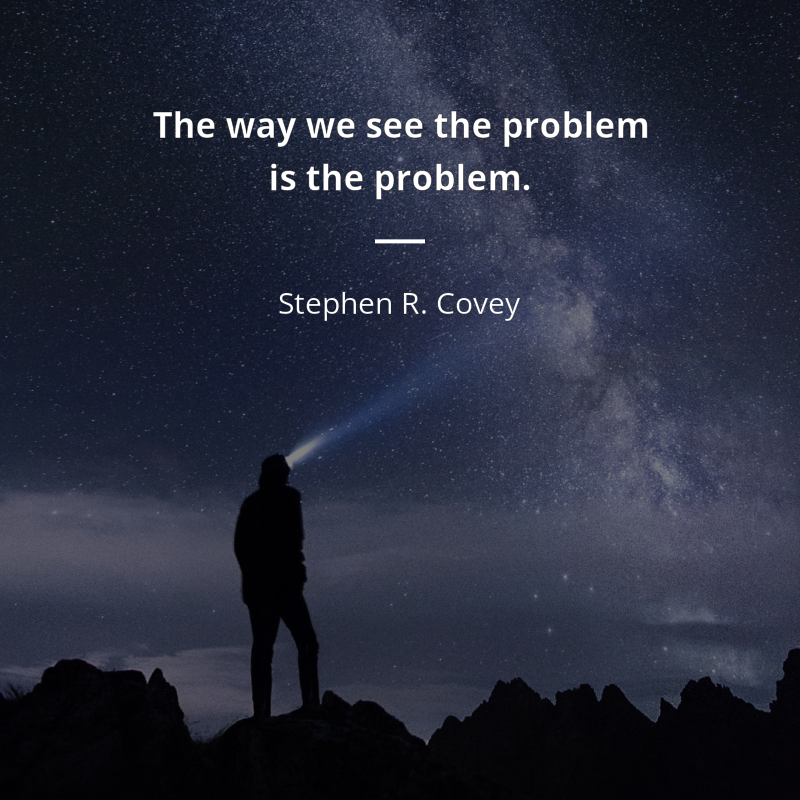Произведение
Семь навыков высокоэффективных людей
Стивен КовиСтивен Кови знаменитые цитаты
Стивен Кови Цитаты о мужчинах
дух
Источник: Семь навыков высокоэффективных людей
парадигма
Источник: Семь навыков высокоэффективных людей
Стивен Кови Цитаты о жизни
„Сделайте вашу работу наполненной жизнью, а не жизнь наполненной работой.“
Make your life work instead of making life full of work.
«Важные дела в начале»
„Наша жизнь — результат сделанных нами выборов.“
Our life is result of our choices.
«Важные дела в начале»
парадигма
Источник: Семь навыков высокоэффективных людей
Стивен Кови цитаты

„Мудрость — это взаимодействие разума и сердца.“
Wisdom is synergy of mind and heart.
«Важные дела в начале»
„Концепция без жизненных ценностей может создать Гитлера.“
Vision without values may create Hitler.
«Важные дела в начале»
„Живите в соответствии со своим воображением, а не своим прошлым.“
Живите, исходя из вашего воображения, а не вашей истории.
„Пока вы живёте, учитесь жить.“
Until you live, learn how to live. Ср. с русской поговоркой Век живи — век учись.
«Важные дела в начале»
Вариант: Пока вы живёте, учитесь жить.
Best's enemy is Good.
парафраз от «Лучшее — враг хорошего» (впервые — в комментарии итальянского автора М. Джованни (1574) к «Декамерону» Боккаччо)
Приписываемые цитаты
Источник: Энциклопедический словарь крылатых слов и выражений / составитель В. В. Серов — М.: «Локид-Пресс», 2005.
„Мы так часто пилим, что совсем забывает заточить пилу.“
Often we are so busy with sawing that we forget to sharpen the saw.
«Важные дела в начале»
„Вместо того, чтобы разглядывать фрагменты, попробуйте увидеть полную картину.“
Instead of looking at fragments, try to see the whole picture.
«Важные дела в начале»
парадигма
Источник: Семь навыков высокоэффективных людей
There will be real happiness, peace of mind and balance, when living by heart and right-mindedly.
«Важные дела в начале»
образ
Источник: Семь навыков высокоэффективных людей
„Наши создают наследство нашим детям.“
Our choices make the legacy to our children.
«Важные дела в начале»
<math>\textstyle\frac{3}{4}</math> of world problems and bewilderment would be lost if we understood our opponents.
«Важные дела в начале»
Стивен Кови: Цитаты на английском языке

Источник: The 7 Habits of Highly Effective People
“Most people do not listen with the intent to understand; they listen with the intent to reply.”
Источник: The Seven Habits Of Highly Effective People (1989), p. 239
Источник: The 7 Habits of Highly Effective People: Powerful Lessons in Personal Change
Источник: The 7 Habits of Highly Effective People
Источник: The Seven Habits Of Highly Effective People (1989), p. 101
“Trust is the glue that holds everything together.”
Источник: First Things First (1994), p. 243 <!-- Originally added as a paraphrase : The moment of making choice is the moment of truth! -->
Контексте: Trust is the glue that holds everything together. It creates the environment in which all of the other elements — win-win stewardship agreements, self-directing individuals and teams, aligned structures and systems, and accountability — can flourish.
“Give no answer to contentious arguments or irresponsible accusations.”
Источник: Principle-Centered Leadership (1992), Ch. 11
Контексте: Give no answer to contentious arguments or irresponsible accusations. Let such things "fly out open windows" until they spend themselves.
“Retire from your job but never from meaningful projects.”
The 8th Habit : From Effectiveness to Greatness (2004)
Контексте: Retire from your job but never from meaningful projects. If you want to live a long life, you need eustress, that is, a deep sense of meaning and contribution to worthy projects and causes, particularly your intergenerational family.
The 8th Habit : From Effectiveness to Greatness (2004), p. 63
“Ineffective people live day after day with unused potential.”
Источник: The 7 Habits of Highly Effective People: Powerful Lessons in Personal Change
“Admission of ignorance is often the first step in our education.”
Источник: The 7 Habits of Highly Effective People: Powerful Lessons in Personal Change
As quoted in Teaching Sport and Physical Activity : Insights on the Road to Excellence (2003) Paul G. Schempp, p. 79
Источник: Principle-Centered Leadership (1992), Ch. 11
Контексте: Unless we exercise our power to choose wisely, our actions will be determined by conditions. Our ultimate freedom is the right and power to decide how anybody or anything outside ourselves will affect us.
Источник: The 7 Habits of Highly Effective People: Powerful Lessons in Personal Change
Источник: The 7 Habits of Highly Effective People: Powerful Lessons in Personal Change
“Selfless service has always been one of the most powerful methods of influence.”
Источник: Principle-Centered Leadership (1992), Ch. 11
Контексте: Perform anonymous service. Whenever we do good for others anonymously, our sense of intrinsic worth and self-respect increases. … Selfless service has always been one of the most powerful methods of influence.
“Let natural consequences teach responsible behavior.”
Источник: Principle-Centered Leadership (1992), Ch. 11
Контексте: Let natural consequences teach responsible behavior. One of the kindest things we can do is to let the natural or logical consequences of people's actions teach them responsible behavior. They may not like it or us, but popularity is a fickle standard by which to measure character development. Insisting on justice demands more true love, not less. We care enough for their growth and security to suffer their displeasure.
The 8th Habit : From Effectiveness to Greatness (2004)
Контексте: Values are social norms — they're personal, emotional, subjective, and arguable. All of us have values. Even criminals have values. The question you must ask yourself is, Are your values based upon principles? In the last analysis, principles are natural laws — they're impersonal, factual, objective and self-evident. Consequences are governed by principles and behavior is governed by values; therefore, value principles!
p. 49
Источник: First Things First (1994), p. 113
Контексте: It's not enough to have values without vision; you want to be good, but you want to be good for something. On the other hand, vision without values can create a Hitler. An empowering mission statement deals with both character and competence; what you want to be and what you want to do in your life.
principles such as fairness, kindness, respect, honesty, integrity, service, contribution. Different cultures may translate these principles into different practices and over time may even totally obscure these principles through the wrongful use of freedom. Nevertheless, they are present. Like the law of gravity, they operate constantly.
p. 47
The 8th Habit : From Effectiveness to Greatness (2004)
The 8th Habit : From Effectiveness to Greatness (2004)
Контексте: Values are social norms — they're personal, emotional, subjective, and arguable. All of us have values. Even criminals have values. The question you must ask yourself is, Are your values based upon principles? In the last analysis, principles are natural laws — they're impersonal, factual, objective and self-evident. Consequences are governed by principles and behavior is governed by values; therefore, value principles!
p. 49
“Are your values based upon principles?”
Источник: The 8th Habit : From Effectiveness to Greatness (2004), p. 49
Контексте: Values are social norms — they're personal, emotional, subjective, and arguable. All of us have values. Even criminals have values. The question you must ask yourself is, Are your values based upon principles? In the last analysis, principles are natural laws — they're impersonal, factual, objective and self-evident. Consequences are governed by principles and behavior is governed by values; therefore, value principles!
Источник: First Things First (1994), p. 12 <!-- Originally added as : Instead of taking two watches, take compass. It is not important how fast you are moving, but where you are moving. -->
Контексте: We present a dramatically different approach to time management. This is a principle-centered approach. It transcends the traditional prescriptions of faster, harder, smarter, and more. Rather than offering you another clock, this approach provides you with a compass — because more important than how fast you're going, is where you're headed.
The 8th Habit : From Effectiveness to Greatness (2004)
Контексте: Principles are universal — that is, they transcend culture and geography. They're also timeless, they never change — principles such as fairness, kindness, respect, honesty, integrity, service, contribution. Different cultures may translate these principles into different practices and over time may even totally obscure these principles through the wrongful use of freedom. Nevertheless, they are present. Like the law of gravity, they operate constantly.
p. 47
